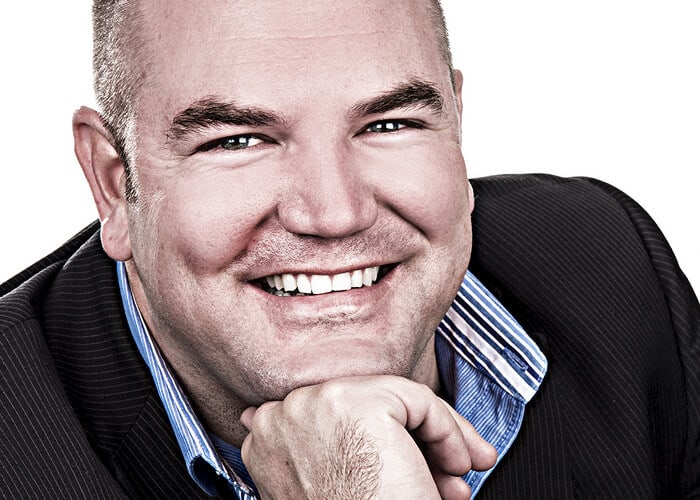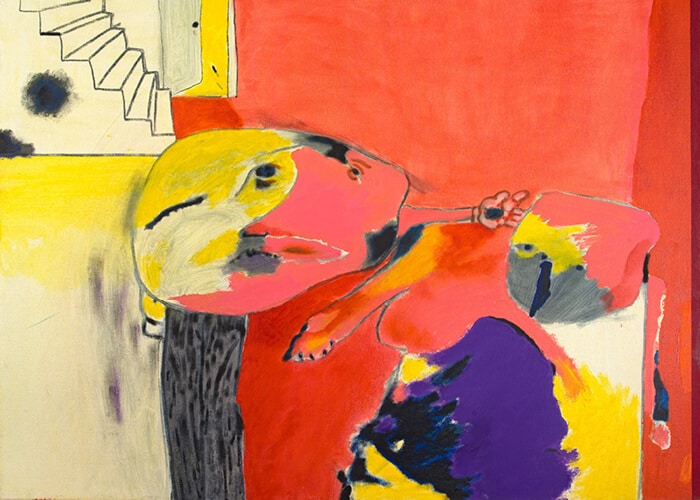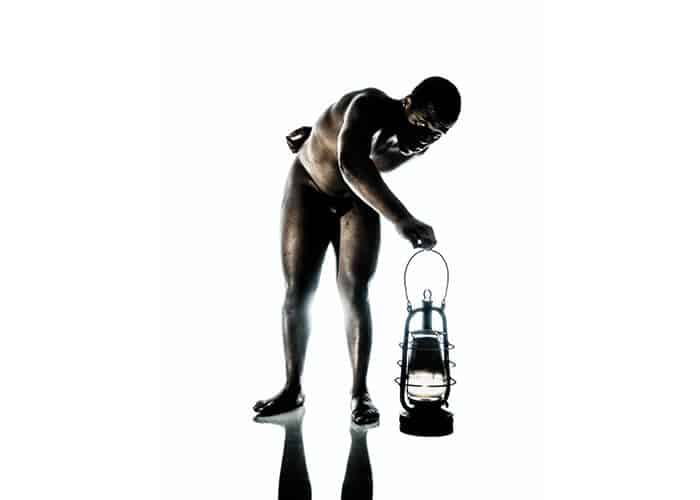Brendon Bell-Roberts met up with the swiss curator, writer and art historian Hans Ulrich Obrist to discuss the latest edition of the Brutally Early Club, which was held for the first time on African shores in Johannesburg earlier this year.
You will also be able to access this exclusive content in the September Digital Issue of ART AFRICA (FREE app download here for Apple and here for Android)!
 Hans Ulrich Obrist. Image Source: Han Ulrich Obrist’s contributor profile for Nowness.
Hans Ulrich Obrist. Image Source: Han Ulrich Obrist’s contributor profile for Nowness.Brendon Bell-Roberts: Coming out of this morning’s Brutally Early Club session, there were five main themes or needs that were highlighted; 1) the need for places and spaces, both physical and digital, where art practice can live and thrive, 2) the need for strong communication and telling of stories, 3) the importance of the archive (which 89plus essentially is – an archive that brings together the artists and practitioners that are building and creating it), 4) the fluidity of the concept of an ‘institution’ and of course, 5) the importance of memory in our collective narratives.
Can you tell us a little bit about the Brutally Early Club and provide some feedback on this morning’s session?
Hans Ulrich Obrist: We are delighted to have hosted the club for the first time in Africa, here in Johannesburg. I’ve been here twice before, but never hosted a club. Together with Markus Miessen we invented the ‘Brutally Early’ session format to enable improvisation, because we feel that our daily lives don’t allow for much of it – you have to plan gatherings a long time in advance. So, we decided to do it at 06h30, for about two hours, because that’s when the city wakes up – and people don’t usually have other plans. It’s a wonderful way to start the day and experience the city. The only place in which it hasn’t really worked was Berlin, as no one wanted to meet early.
Along with the other topics discussed, we wanted to exchange views on enabling the future generation and how we can support this. The conversation thus happened to focus on schools and ideas for new models of education. These sessions promote exchange in both formal and informal contexts – planned and spontaneous discussion. It’s also interesting to learn about what each person is working on. In a city like Johannesburg, not everybody knows everybody. The worlds of art, music, poetry and architecture aren’t always connected and the desire to bring them together in one space, I would say, is the drive behind the Brutally Early Club.
We started on the topic of what each person does and then asked the question, “what is urgent?” in order to glean each participant’s focus. This is an interesting conversation starter; it allows insights into each participant’s vision – even if they’re already familiar with each other.
In London, the sessions usually happen in Costa Cafes, but the locations are always dependent on opening hours. We now have a new club, which I haven’t really spoken about yet. We founded this club with artists Felix Melia and Josh Bitelli when they said “06h30 is a really dull time, you should do it at 3am.” I said, “Oh my God, 3AM?” But they heard “OM 3am,” so that’s what we called it. Now we have sessions at 3am. It’s another homeless club, always at different locations. The idea there is to host a film premiere at three in the morning. We’ve held the OM 3am club at a twenty-four hour service station, a bus park, and a twenty-four hour coffee shop at King’s Cross in London. We also did it in the Hilton at Heathrow because hotels are always open at that time. I think there is a desire, in the 21st century, for storytelling and the focus on this specific club is for it to be a pretext for telling each other stories.
When I meet people for the first time I’m shy – I think many people are. But I think that there is a sort of humility in these first encounters; there is something magical about getting to know someone for the very first time. The club creates these encounters and I’m delighted when participants continue to talk because new connections, new ideas, new sparks and new friendships will emerge. That’s as important to us as getting to meet them.
I think that those sparks are created by the stories we share – they create continuity to the conversations, which is important.
I’m very inspired by György Kepes. He once said we have to go beyond the fear of pooling knowledge and Julia Kristeva told me the same. She said, “we need a pool of knowledge and we need to go beyond the anxiety we have about pooling knowledge.” We live in a world with all of these different disciplines, but they’re actually industries. The art world is an industry. In the early 90s it was a very small world, now it’s an industry. The music world is an industry; the literature world is an industry. Industries have these mechanisms that segregate and people become so preoccupied within their own field. My aim is always to rupture that segregated enclosure – to create a situation where we can pool that knowledge.
Many people outside the art world have definitely inspired me as a curator. I was very inspired by urbanist Cedric Price; Etel Adnan – the poet from Lebanon who has been a great inspiration in my life for the last ten years – and Édouard Glissant, a philosopher, poet and critic; who has been a great source of inspiration for the last twenty years. It’s not by coincidence that Marcel Duchamp got his great inspiration from Jules Henri Poincaré, the physicist.
I think that highlights the fact that really interesting things happen when you make unconventional matches, like scientists and engineers with artists.
Absolutely! And also memory – some of the things Gabi Ngcobo spoke about have to do with the necessity of memory. Memory is very important in the 21st century. In this digital age, we think there’s an unlimited amount of information but it’s not because we have so much information that we have memory. Maybe amnesia is at the very core of the digital age. For this reason, I really believe that it’s important that we can protest against forgetting.
Our big project is to establish a school; we do these residencies with 89plus, but soon I want to found a new Black Mountain College. I have always wondered if there are models for such schools in Africa. This morning someone spoke about the Khanya schools. I wasn’t familiar with these 80s colleges for the working class and disenfranchised communities.
Speaking of memory, what insight can you give us on the physical and digital archive; creating, publishing works for future use and the need to archive existing work?
Currently the database – which Simon Castets and I founded for 89plus – comprises six thousand artists and we need to use certain tools in order to curate in the digital age. But these tools aren’t a replacement for the former tools. When the television was invented, radio didn’t become irrelevant – it was reinvented and is now better than ever. I think, in some way, it’s the same with research. Meetings like this morning’s could have happened a hundred years ago; only it would have had to be organised differently – phone calls, telegrams – whereas today we can just send an email.
Now there are new modes of research. On our database, for example, anyone in the 89plus Project can upload their work – so we have artists who come to our attention from a village in a desert in Australia, who we would not see otherwise. Our research takes us to cities – we’re in Accra, Johannesburg and in Addis Ababa. There are really great artists practising outside the cities who we don’t have access to – but wherever they are, they can upload their work. I’d like to encourage whoever reads this to upload on the 89plus website. We review submissions everyday. In that sense it’s a great opportunity, which we embrace, but it doesn’t replace the old form of research. For me, it’s important that my research is not only transdisciplinary but transgenerational. Whilst in Johannesburg, we visited William Kentridge and I did an interview with Santu Mofokeng. These encounters are as much a part of the research. I asked him what his advice is to the 89plus generation and he said, “Don’t listen, get a job.”
These encounters form part of my interview project. Besides my curatorial practice, I conduct and record these conversations to preserve and archive oral history. We are making a map of that generation, but it’s more than that, we want to enable and produce reality.



